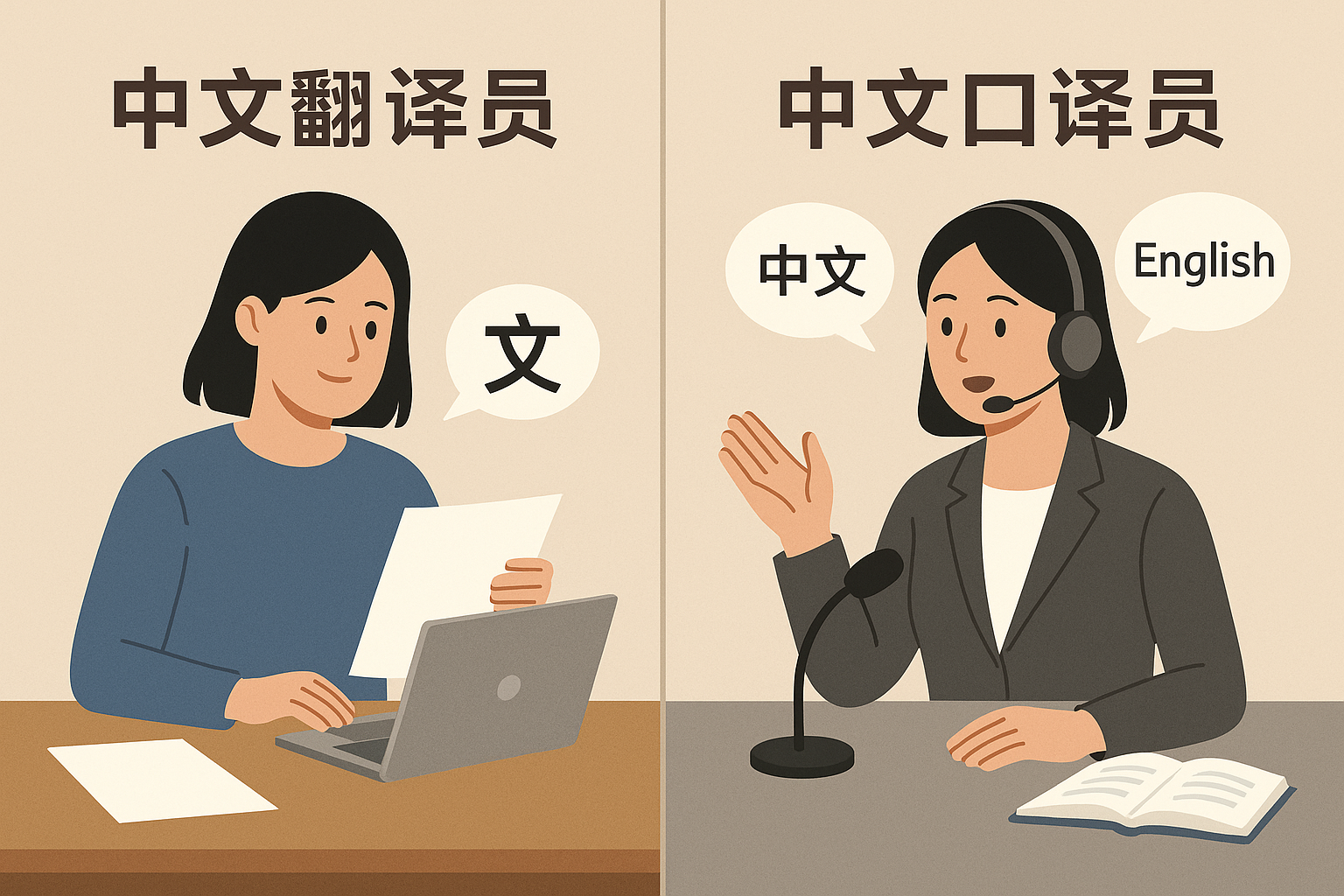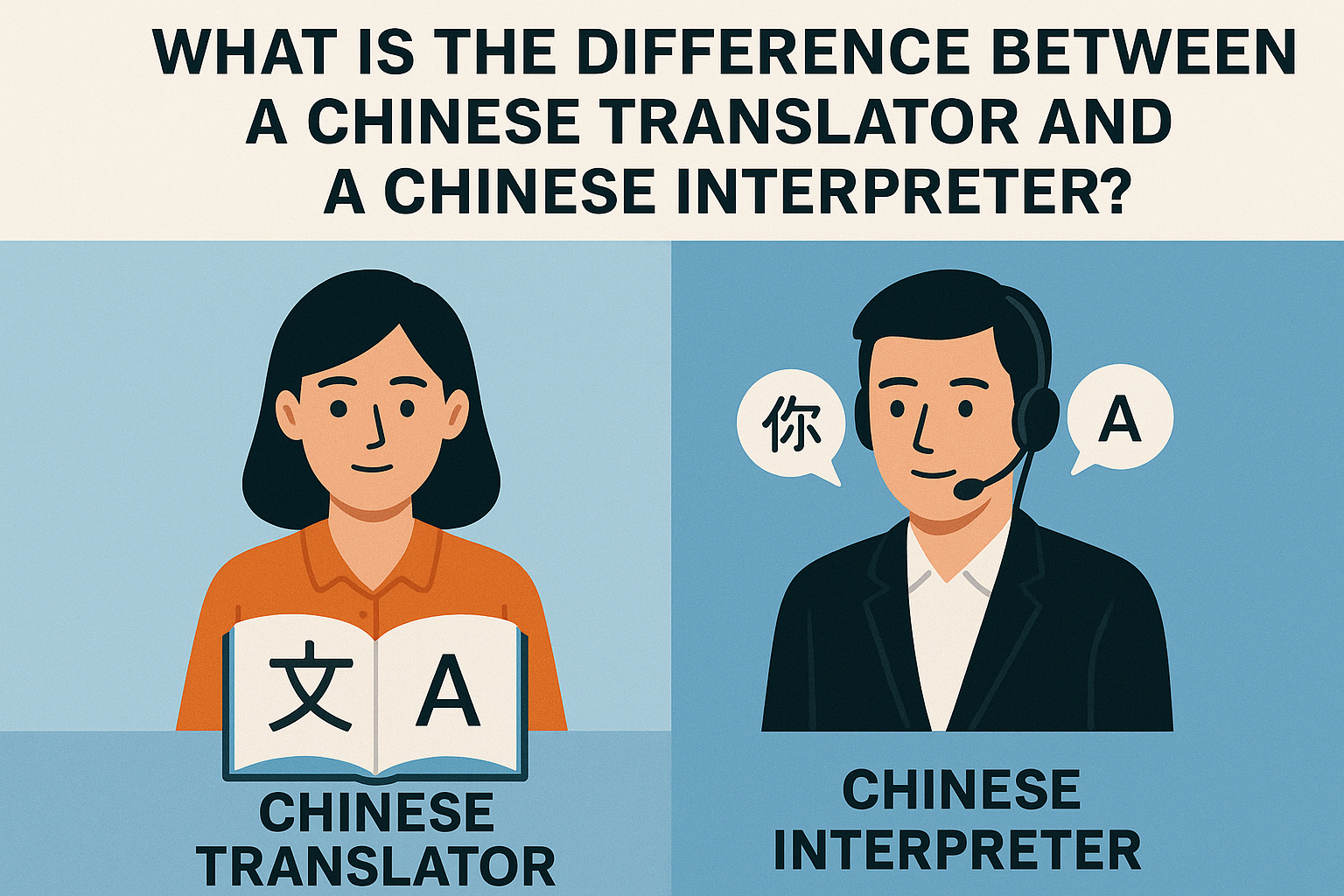Translation · 22 May 2025
翻译员处理书面中文文件,口译员则在现场进行口头语言传译。二者所用技能、工具及工作场景各异。前者注重准确表达与书面语风格,后者注重实时反应与口语沟通能力。了解区别,才能选择最合适的语言服务。
Translation · 22 May 2025
Chinese translators work with written texts, ensuring accurate translations of documents. Interpreters handle spoken language in real time, such as during meetings or court sessions. Both require high fluency, but the skills, tools, and settings they work in are very different.
NAATI · 17 May 2025
我在上海外国语大学学习英语文学,开启了对翻译的热情。之后来到澳洲,攻读西悉尼大学的翻译与口译硕士课程,并通过必修课“Accreditation”(NAATI认证课)的期末考试,顺利取得英译中、中译英及英⇄普通话口译三项NAATI认证。如今,我已成为NAATI认证翻译员,提供专业、可靠的语言服务。
NAATI · 17 May 2025
I began my translation journey at Shanghai International Studies University, then pursued a Master's at the University of Western Sydney. There, I passed NAATI exams in English→Chinese, Chinese→English, and interpreting. Now NAATI-certified, I provide professional, reliable translation and interpreting services across Australia.
Interpreting · 14 May 2025
在澳洲出庭或看医生时,如需中文翻译,请务必预约NAATI认证口译员。提前准备身份证、相关文件,说话简洁清楚,避免与翻译私聊。有疑问要主动询问。专业人士应提前预约、直接对客户讲话,并适当停顿。切勿使用未受训亲友翻译,以免造成误解或法律问题。专业翻译能保障你的权益与信息安全。
Interpreting · 14 May 2025
Attending court or a medical appointment with a Chinese interpreter? Work with a NAATI-certified professional. Bring key documents, speak in short sentences, and be clear. Professionals should speak directly to the client, avoid jargon, and allow pauses for interpretation. Don’t rely on untrained bilingual staff—accurate interpretation protects your rights and safety.
NAATI · 02 May 2025
在澳大利亚,如果你需要提交中文文件用于移民、留学或法律用途,通常需要NAATI 认证翻译。
NAATI(澳大利亚国家笔译口译认证机构)是官方认可的翻译资格认证机构。移民局、法院、大学等都要求文件翻译由 NAATI 认证译员完成。
认证翻译包含翻译员信息和认证声明。现在大多数翻译使用电子印章,更安全、通用。是否附上原件扫描可按需提供。
常见翻译文件包括身份证、出生证明、学历、结婚证等。我是NAATI 认证中英翻译员,提供高质量、快速、全程在线的专业翻译服务。







